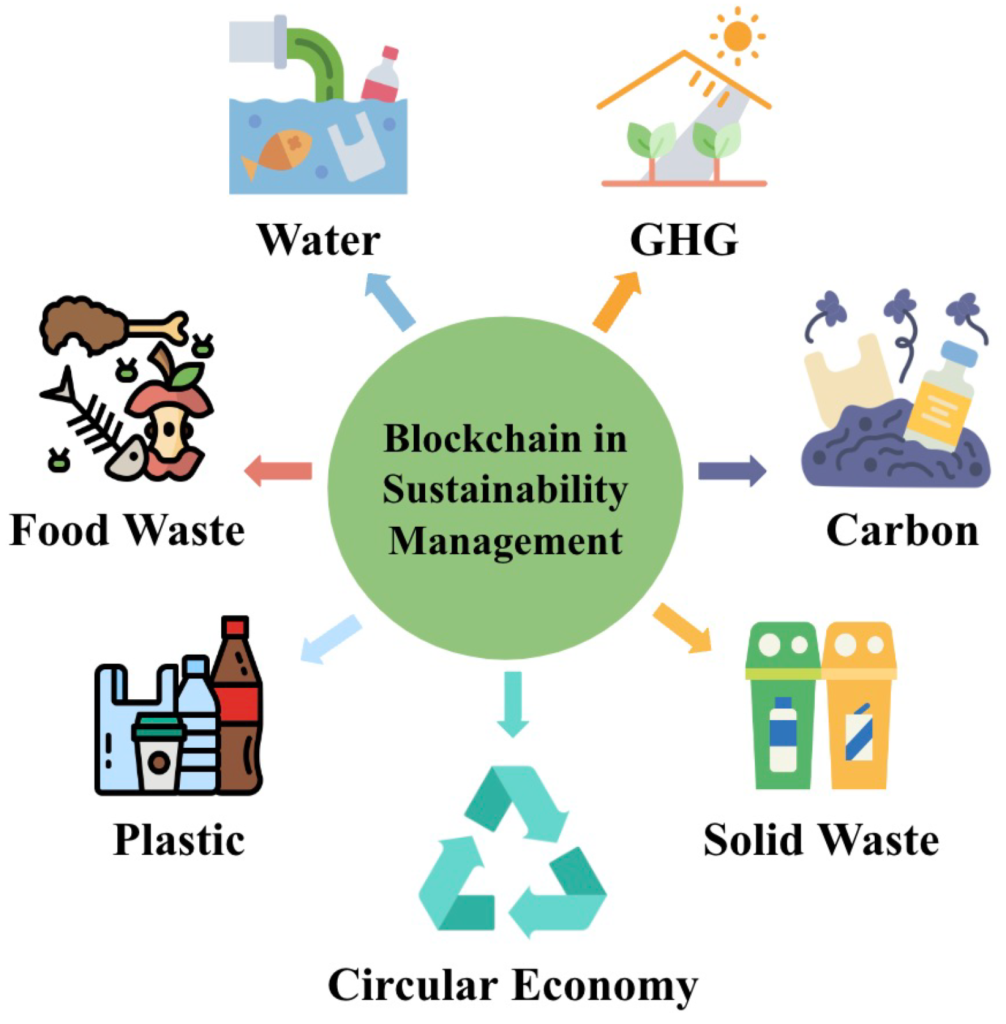As the world faces mounting environmental challenges, innovative technologies are playing an increasingly vital role in combating climate change. Among these technologies, blockchain stands out for its potential to transform the way we address environmental issues. By 2025, blockchain has become a critical tool in climate action, enabling transparency, accountability, and collaboration across various sectors.

1. Enhancing Carbon Credit Trading
Blockchain has revolutionized the carbon credit market by ensuring transparency and preventing fraud.
- What’s Changed: Traditional carbon credit systems have often been criticized for their lack of traceability. Blockchain technology addresses this by creating a tamper-proof ledger where every transaction is recorded and verifiable.
- Impact: Companies and governments can now trade carbon credits with confidence, ensuring that the credits genuinely represent a reduction in greenhouse gas emissions. This has led to a more efficient and trustworthy market.
2. Transparent Supply Chain Management
Supply chains are a significant contributor to carbon emissions, but blockchain has made them more transparent and sustainable.
- What’s Changed: By 2025, many industries have adopted blockchain to track the origin and environmental impact of their products. From raw materials to finished goods, every step of the process is recorded on the blockchain.
- Impact: Consumers and companies can make informed choices, opting for products with minimal environmental footprints. This shift has encouraged businesses to adopt greener practices to remain competitive.
3. Promoting Renewable Energy Adoption
Blockchain has played a pivotal role in accelerating the transition to renewable energy sources.
- What’s Changed: Decentralized energy grids powered by blockchain allow households and businesses to trade surplus renewable energy, such as solar or wind power, directly with others.
- Impact: This peer-to-peer energy trading model has reduced dependence on fossil fuels, lowered energy costs, and empowered communities to take charge of their energy needs.
4. Strengthening Climate Finance
Funding climate initiatives is crucial, and blockchain has made climate finance more efficient and accountable.
- What’s Changed: Blockchain-based platforms now facilitate transparent funding and distribution of resources for climate projects. Donors can track how their funds are used and ensure they reach the intended recipients.
- Impact: This transparency has increased trust in climate finance, encouraging more individuals and organizations to contribute to environmental causes.
5. Encouraging Sustainable Practices Through Tokenization
Blockchain has introduced innovative ways to incentivize sustainable behavior.
- What’s Changed: By 2025, many organizations and governments use blockchain-based tokens to reward individuals and businesses for eco-friendly actions, such as recycling or reducing energy consumption.
- Impact: These tokens can be redeemed for goods, services, or even monetary value, creating a strong incentive for sustainable practices.
6. Mitigating Illegal Deforestation
Deforestation is a major driver of climate change, but blockchain is helping to combat this issue.
- What’s Changed: Blockchain enables real-time tracking of deforestation activities through satellite data and smart contracts. Alerts are triggered when illegal logging occurs, and the data is stored securely for accountability.
- Impact: Governments and environmental organizations can respond more effectively to illegal deforestation, protecting vital ecosystems and biodiversity.
7. Empowering Grassroots Climate Action
Blockchain has made it easier for communities to participate in climate action initiatives.
- What’s Changed: Decentralized platforms powered by blockchain allow local communities to crowdfund and manage climate projects independently.
- Impact: Grassroots efforts have gained momentum, with communities taking ownership of projects like reforestation, clean water access, and renewable energy installations.
8. Real-Time Climate Data Sharing
Access to accurate and timely climate data is essential for effective action, and blockchain has streamlined this process.
- What’s Changed: Blockchain-based systems now collect and share real-time data on emissions, weather patterns, and resource consumption.
- Impact: Policymakers, scientists, and businesses can make data-driven decisions to mitigate climate change and adapt to its effects.
9. Reducing Waste Through Circular Economies
Blockchain has facilitated the creation of circular economies, reducing waste and promoting sustainability.
- What’s Changed: By 2025, blockchain tracks the lifecycle of products, ensuring that materials are reused, recycled, or repurposed rather than discarded.
- Impact: This has significantly reduced waste in industries like fashion, electronics, and construction, contributing to a more sustainable economy.
10. Boosting Collaboration Across Borders
Climate change is a global issue, and blockchain has fostered international cooperation.
- What’s Changed: Blockchain-powered platforms enable countries, organizations, and individuals to collaborate on climate projects transparently and efficiently.
- Impact: Shared resources and knowledge have accelerated the development and implementation of climate solutions worldwide.

Final Thoughts
By 2025, blockchain has proven to be a game-changer in the fight against climate change. Its ability to enhance transparency, accountability, and collaboration has empowered individuals, businesses, and governments to take meaningful action. As blockchain technology continues to evolve, its role in climate action will only grow, paving the way for a more sustainable and equitable future.


